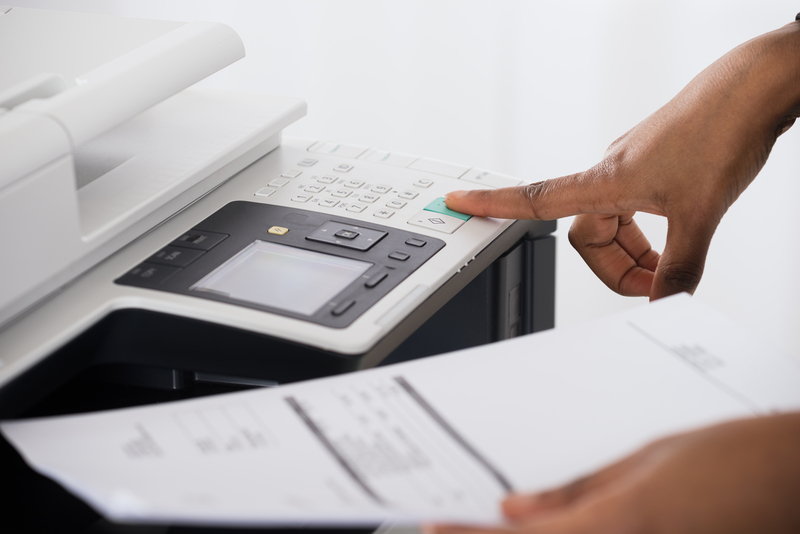Efficient Practices for Plant Pot Disposal
When it comes to efficient practices for plant pot disposal, many gardeners and homeowners find themselves uncertain about the most responsible and convenient methods. With environmental concerns on the rise, proper disposal, recycling, and even repurposing of plant pots are more important than ever. This comprehensive guide will walk you through sustainable and effective techniques for handling plant pots at the end of their useful life.

Understanding the Importance of Proper Plant Pot Disposal
Numerous plant pots are made from materials that do not decompose easily, such as plastic, ceramic, and terra cotta. Each year, millions of these container pots end up in landfills, contributing to environmental pollution. By adopting eco-friendly disposal practices for plant pots, you not only keep your garden tidy but also reduce your environmental footprint.
- Plastic waste: Most plant pots are made of recyclable plastic, but when thrown away, they may not always reach recycling facilities.
- Resource conservation: Recycling and repurposing conserve resources and reduce the need for new raw materials.
- Sustainability: Implementing eco-conscious methods supports the broader movement towards sustainable gardening.
Types of Plant Pots and Their Disposal Needs
Not all plant pots are created equal. Understanding your plant pot disposal options starts with identifying what type of material your pots are made from.
1. Plastic Plant Pots
- Most common type: Lightweight, durable, widely used by nurseries.
- Recyclable codes: Typically stamped with recycling codes 2, 5, or 6 (HDPE, PP, PS).
2. Biodegradable and Compostable Pots
- Eco-friendly options: Made from compressed peat, coconut coir, or recycled paper.
- Compostable: Decompose naturally in home compost or soil.
3. Terracotta and Ceramic Pots
- Breakable: Heavier and prone to breaking, but very durable.
- Not biodegradable: These cannot break down in compost or landfill, but can be upcycled.
4. Metal and Wooden Pots
- Wooden pots: Usually biodegradable, suitable for composting if untreated.
- Metal pots: Best recycled through scrap metal programs.
Efficient Plant Pot Disposal Methods
1. Reusing and Repurposing Plant Pots
One of the easiest and most sustainable approaches is to reuse plant pots. Before disposing, consider if they can be utilized for other purposes:
- Seed starting: Old pots are perfect for starting seeds or cuttings.
- Container gardening: Use pots for growing herbs and small plants on balconies or patios.
- Organizational uses: Store garden tools, labels, or use for crafts and storage in the garage.
- DIY projects: Convert broken pots into fairy gardens, mosaics, or creative planters.
Double-check the condition of your pots; even chipped or cracked containers can serve new purposes. Creative upcycling not only reduces waste but adds charm and personality to your home and garden.
2. Recycling Plant Pots
Many municipalities now offer plastic pot recycling programs. However, not all recycling facilities accept plant pots due to the type of plastic or leftover residues.
- Clean thoroughly: Remove all soil and plant material as they can contaminate recycling streams.
- Check local regulations: Look up nearby nurseries, big-box stores, and waste management centers, which often provide special bins or programs.
- Remove labels and stickers: These can interfere with the recycling process.
Some popular retailers such as Lowe's, The Home Depot, and local garden centers frequently run "pot recycling drop-off" days each season, especially after spring planting.
For biodegradable pots, check if your home compost can handle them, or dispose of them in green waste bins provided by your local council.
3. Donating Used Plant Pots
If your plant pots are still in good condition, donating is a great way to give them new life:
- Community gardens: Many urban gardens rely on donations for pots and tools.
- Schools and non-profits: Educational programs and charities often welcome free gardening supplies.
- Social media and swap groups: Platforms such as Facebook Marketplace or local gardening groups are great places to pass on unwanted pots.
4. Composting Biodegradable Pots
Compostable pots are designed to break down in organic matter. To compost:
- Shred large pots: Breaking them into smaller pieces speeds up decomposition.
- Mix thoroughly: Ensure they are mixed with kitchen or garden waste for balanced composting.
- Avoid chemical treatments: Only compost pots that have not been chemically treated or painted.
Best Practices for Ceramic and Terracotta Pot Disposal
Because ceramic and terracotta pots do not biodegrade, their disposal requires extra consideration. Here are efficient methods for disposing of or repurposing them:
- Break and use as drainage: Smash pots and use shards at the bottom of new pots to improve drainage.
- Landscaping material: Larger pieces can be used in garden paths or as decorative mulch.
- Artistic projects: Turn broken ceramics into mosaics, frames, or decorative borders.
If they are beyond reuse, check if your local recycling facility has a ceramic or building materials collection day. Most landfill operators recommend reusing or repurposing these items wherever possible.
Reducing Waste: Choosing Reusable and Sustainable Plant Pots
The best way to simplify future pot disposal is to make smarter choices from the start. Here are tips to help minimize plant pot waste:
- Opt for high-quality, reusable pots: Invest in durable containers that last many seasons.
- Choose biodegradable or compostable pots: Perfect for temporary planting and reducing landfill input.
- Avoid single-use plastics: Say no to flimsy pots that break after one use, and seek out recycled-content plastic pots.
- Support nurseries that participate in recycling programs: Encourage businesses to take back pots and create closed-loop recycling systems.
How to Organize a Plant Pot Exchange or Recycling Event
If your neighborhood or gardening club generates many unused pots, consider hosting a plant pot exchange or recycling day:
- Spread the word: Use flyers, social media, and local community boards to promote your event.
- Coordinate with nurseries and retailers: Some may be willing to act as collection points or offer recycling services.
- Set up donation areas: Collect pots in a designated space where others can pick up what they need.
- Partner with recycling companies: Work with local waste management to ensure proper recycling of unclaimed pots.
An organized exchange keeps pots out of landfill, encourages community participation, and promotes sustainable gardening.

Frequently Asked Questions on Efficient Plant Pot Disposal
Are all plant pots recyclable?
Answer: While many plastic pots can be recycled, it's crucial to check for the recycling code and your local facility's guidelines. Ceramic, terracotta, and some coated plastics may not be accepted in standard curbside recycling.
Can I compost biodegradable pots at home?
Answer: Yes, if pots are made from untreated natural materials like peat, coconut coir, or recycled paper, they are ideal for home composting. Always shred for faster breakdown.
What should I do with broken plant pots?
Answer: Repurpose broken pieces in your garden landscape for drainage, mulch, or creative projects such as mosaics. If disposal is necessary, follow local guidelines for ceramics or building material waste.
Conclusion: Embracing Efficient and Sustainable Plant Pot Disposal
Adopting efficient practices for plant pot disposal is a vital step towards a healthier environment and more responsible gardening. By:
- Reusing and repurposing where possible
- Recycling through the correct local channels
- Composting biodegradable pots
- Donating to community organizations
you contribute to waste reduction and resource conservation. For future plant purchases, prefer sustainable, reusable, and compostable containers whenever you can. Together, we can all enjoy vibrant gardens while protecting our planet with smarter, more efficient plant pot disposal habits.
Further Reading and Resources
- Royal Horticultural Society - Gardening and Recycling
- Garden Organic - Composting and Sustainable Gardening
- US EPA - Recycling Guidelines
- The Guardian - How to Recycle Plant Pots
Start today by evaluating your plant pot collection and implementing one of these efficient disposal practices. Every small change makes a difference!